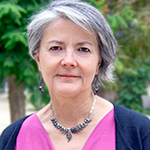The project aims to provide critical insights into how improvements in diet and health in older indigenous people can form the basis for active ageing.
Background
Elderly care for indigenous people in India and Sweden is very different. In India, the nuclear family has responsibility for their elders, while in Sweden the responsibility lies with the authorities. Lack of food is the biggest problem among elderly indigenous people in India, while lack of culturally adapted food is a problem in Sweden. In both cases, there is a lack of knowledge about the importance of traditional food in elderly care.
The project
By investigating the use and importance of traditional diet in the care of the elderly for indigenous people from the Mal Paharia people in India and the Sami in Sweden, we want to answer the following questions:
- What is the importance of nutritious and culturally appropriate food for the elderly?
- What do the elderly care regimes for food look like?
- How can these regimes be improved using a participatory approach?
- What policy recommendations can be made from these surveys?
The study is highly relevant as it focuses on health, organization and welfare aspects of aging from an indigenous perspective. Older indigenous people have knowledge about nutritious diets that are important to take advantage of, both from a care perspective, and from a longer-term self-sufficiency perspective, where their knowledge can give us the keys to a more sustainable, culturally richer and biotope-wise more well-adapted future food system.

